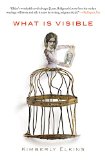Summary | Excerpt | Reviews | Beyond the book | Read-Alikes | Genres & Themes | Author Bio

A Hearing Boy, His Deaf Parents, and the Language of Love
by Myron UhlbergLoads of bestsellers chronicle the lives of celebrities, politicians, or people who have overcome tragedy. This deeply touching memoir, by contrast, originates from an ordinary man who experienced a very special childhood filled with love. Author Myron Uhlberg tenderly describes his unique life, divided between two worlds: One as the child of two deaf parents, the other a mischievous boyhood typical of many others in Depression-era Brooklyn.
Uhlberg's first language was sign, and he vividly compares expressive sign language to written language:
Sign is a live, contemporaneous, visual-gestural language and consists of hand shapes, hand positioning, facial expressions, and body movements. Simply put, it is for me the most beautiful, immediate, and expressive of languages, because it incorporates the entire human body…..sign was a language of the heart. Sign was a beautiful painting, absorbed whole, evoking emotion along with meaning. Written language-my second language-was a language that required the brain for translation.
Just as spoken and written language varies from person to person, so too does sign. Uhlberg's family often joined a wider deaf community which gathered together regularly at a special spot on the Coney Island beach. Over a hundred adults would form a circle of beach chairs and umbrellas, with their kids supervised in the middle, and Uhlberg recalls observing different styles and accents from the signed conversations which occurred across the circle's expanse. While shy personalities employed tiny gestures, outgoing individuals would sign more loosely and expansively. A couple originating from Georgia communicated with a drawl, using slower movements.
Uhlberg's father manages to straddle both languages--sign and the written word--by working as a devoted press printer for the New York Daily News. Readers can't help but wince as the author describes the humiliation his father often endured as a deaf person. "Like most in the hearing world, they treated him as if he were an alien-primitive, incapable of speech, and lacking human thought: a person to be avoided if possible, and if not, ignored." When young Myron visits his father at work one day, he endures comments uttered behind his back: "Look at the dummy's kid. He looks normal." And "Hey, look at that, the dummy's kid. He can talk good."
![]() This review
first ran in the February 19, 2009
issue of BookBrowse Recommends.
This review
first ran in the February 19, 2009
issue of BookBrowse Recommends.

If you liked Hands of My Father, try these:

by Andrew Leland
Published 2024
A witty, winning, and revelatory personal narrative of the author's transition from sightedness to blindness and his quest to learn about blindness as a rich culture all its own

by Kimberly Elkins
Published 2015
A vividly original literary novel based on the astounding true-life story of Laura Bridgman, the first deaf and blind person who learned language and blazed a trail for Helen Keller.
Your guide toexceptional books
BookBrowse seeks out and recommends the best in contemporary fiction and nonfiction—books that not only engage and entertain but also deepen our understanding of ourselves and the world around us.